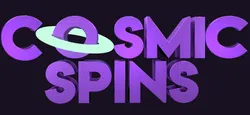The Indian gambling landscape is experiencing a drastic change in 2020s, as demand for online activities keeps growing. This is proven by a recent short report about the growth of the Indian iGaming industry that we published earlier. But today Gamblescope would like to say a couple of words about how Indian lotteries are also keeping up, transitioning into the digital age.
Current State of Lotteries in India
Indians have loved their lotteries since the times predating British rule. Back then rajas and lesser rulers introduced them to fund public projects.
Currently, the primary law at the national level is the Lotteries (Regulation) Act of 1998. This Act permits state governments to organise, conduct, or promote lotteries, provided they adhere to specific conditions, such as the number of draws per week and the manner of ticket sales.
However, due to India being a federal country, much legislation is passed at the state level. And each state has the authority to formulate its laws regarding lotteries.
As of 2024, 13 Indian states out of 28 and 8 Union territories run state lotteries:
-
Arunachal Pradesh
-
Assam
-
Goa
-
Kerala
-
Madhya Pradesh
-
Maharashtra
-
Manipur
-
Meghalaya
-
Mizoram
-
Nagaland
-
Punjab
-
Sikkim
-
West Bengal
There is a peculiar case of Kerala, which banned online lotteries in 2005 while allowing traditional lottery with paper tickets to function. This decision was upheld by the Supreme Court of India in 2015, affirming the state's authority to ban online lotteries while permitting traditional paper ones.
The states of Sikkim, Maharashtra, West Bengal and, until recently, Goa also have similar legislation. The reasons behind the online lottery ban are the need to prevent fraud, ensure responsible gambling practices, maintain regulatory control and fight gambling addiction. However, the times are changing.
Lotteries are Finally Shifting From Paper to Apps
In 2024 Goa finally embraced the future by launching a fully tech-based online lottery named "Great Goa Games." The first draw is expected on November 24 with app-based ticket sales beginning on November 18.
The preparations for this have been in the works since February 2023. And the license was issued by Goa’s Directorate of Small Savings and Lotteries, an institution responsible for regulating and managing state-run lotteries to generate revenue for public welfare projects (just like in the old times).
However, this is just the beginning. The Economic Times quotes the words of Narayan Gad, the director of Small Savings and Lotteries: "With our online lottery streamlining processes through technology, we are setting a new standard in the lottery industry. The technology-based product will enhance transparency and ensure improved monitoring and regulation of operations."
It is expected that other states will follow Goa’s example in the upcoming years and launch fully digital lotteries of their own. According to an Indian think tank named Pahle India Foundation, paper tickets just don’t correspond to the demands of the time anymore. They take effort to distribute to retailers, are prone to forgery, when in high volumes — are hard to keep track of which ones were sold, unsold or defective. And this opens the door for corruption.
Why Indian Lotteries Will Continue to Shift to Digital
As we at Gamblescope dug deeper for reasons, we have found that the answer “To keep up with the times” would be just a part of the truth. Same with the answer “Because of Indian high-tech culture allowing the development.”
The true reason is that the Internet penetration rate in India has risen from just 8.5% of the population in 2010 to around 68% in 2024. On the scale of India that’s 850 million people gaining access to the World Wide Web in 14 years.
The company behind this Internet revolution is Jio, which launched its 4G services in 2016. And quickly gained a market share through an aggressive campaign, offering free high-speed 4G data and voice calls for several months during the launch period, extremely affordable data plans and even affordable smartphones through its JioPhone initiative.
This “Jio Effect” created a huge pool of people used to access the Internet mainly through smartphones. Hence the potential lottery player base willing to go digital, not stay with paper.
Conclusion
According to a White Paper from the Pahle India Foundation, the Indian lottery market’s value is projected to reach $9.8 billion by the end of 2024 and $44.3 billion by 2030. So the Indian lottery market has a bright future in front of it. Especially, when more states will follow Goa’s example and launch their digital lotteries.


![Casino Luck [UK] Casino Luck [UK]](/static/media/images/cover.30388174.png.webp)